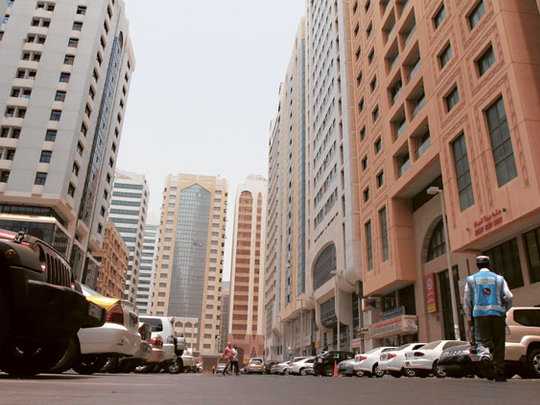
Real estate market review: Cityscape Business Breakfast
Abu Dhabi Recent merger talks among Abu Dhabi property developers are an indicator that the capital's real estate sector is going through a market cycle, industry experts said Monday.
Following a peak in rents in 2008 and the subsequent plunge in the market, experts said, the capital could this year see a spate of initiatives that will consolidate and strengthen players, such as the announcement made on Sunday about master developers Aldar and Surouh considering the legal and commercial aspects of a merger.
"A slowdown in the real estate market is usually followed by a consolidation of major players, which may then allow them to expand in the future," Emile Habib, managing director of property developer Gulf Related, told Gulf News.
He was speaking yesterday on the sidelines of a Cityscape discussion regarding the real estate trends in Abu Dhabi.
Analysts at the session said that a merger between Abu Dhabi's leading property developers would help both companies pool their resources and increase operational efficiency.
Balance sheet
"It will also enable Aldar to improve its balance sheet and boost shareholder confidence. And when the market rebounds, a consolidated firm would also be better poised to expand," Habib said.
Other experts added that if approved, the merger would be in line with the Abu Dhabi government's strategic review of its projects, many of which received the Executive Council's approval in January.
"Last year was tough for real estate as the government had ‘turned off the tap' for investments. But at the beginning of 2012, the Executive Council approvals once again reaffirmed the government's commitment to the 2030 Vision," said David Dudley, the head of the Abu Dhabi office at real estate services firm Jones Lang LaSalle.
These approved projects, which include the construction of the Khalifa Industrial Zone Abu Dhabi (Kizad) and the redevelopment of the Abu Dhabi International Airport, will create a demand for premium office and warehouse space by multinational companies.
In 2011, the emirate received 270,000 square metres of office space, according to a Jones Lang LaSalle report on 2012 real estate trends. Nearly 617,000 square metres of more space is expected to be supplied this year.
"In this current market with oversupplied office space, quality will become the differentiating factor...," said Al Fatih Saeed, the chief executive officer of Abu Dhabi Business Hub.
"In addition, the capital currently has 10 million square metres of warehouse space, of which only 10 per cent is good quality. So there is still much scope for purpose-built quality facilities that are leased under long-term contracts," Saeed added.
The current oversupply in the residential market is also expected to persist until 2014-2015, Habib told the session.
In addition to 10,000 residential units that were delivered in 2011, nearly 28,000 more residential units are expected to come on-line in 2012.
"Rents will continue to face downward pressure until this oversupply is absorbed," Habib said.
"In fact, only retail space is currently undersupplied, but this is set to change when a number of new malls open up across the city and its suburbs," he added.












